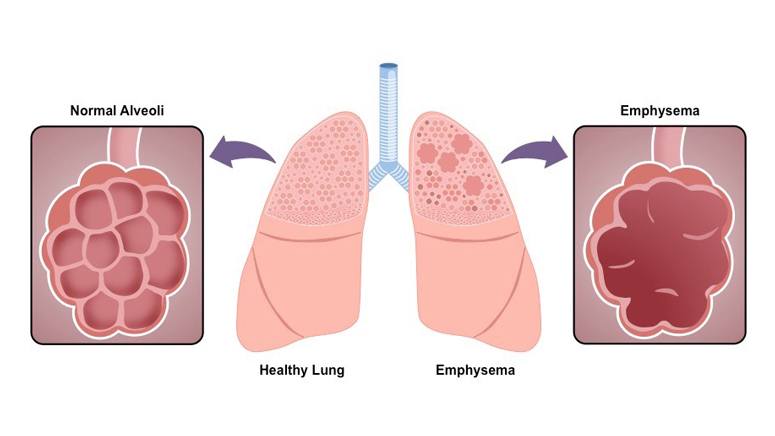What is emphysema?

Emphysema is a severe lung disease that describes all the changes that occur in people who have chronic obstructive pulmonary disorder (COPD). COPD can be divided into two groups: emphysema and chronic bronchitis.
Chronic bronchitis is a type of COPD that occurs when your airways become inflamed and irritated. This leads to the accumulation of mucus and obstructions in the airways.
Emphysema is a lung disease that affects the tiny air sacs (alveoli) in your lungs. It reduces the elasticity of the air sacs, and reduces their ability to shrink and expand during breathing.
Since the elasticity of the alveoli reduces, air remains trapped instead. In most cases, this leads to permanent damage of the alveoli. Alveoli is the organ responsible for transferring oxygen to your blood. Therefore, any damage to your alveoli will reduce the amount of oxygen that gets to your blood.
Emphysema and lung cancer are majorly caused by smoking. Aging also contributes to the reduction of lung function that occurs in people with emphysema. Three things happen during the aging process: The alveoli change their shape and become very compliant, the diaphragm, the major respiratory muscle, grows weaker and loses its ability to breathe in or out, and the nerves in the airways lose their sensitivity to foreign particles. Accumulation of particles in the lungs can destroy lung tissues. It can also lead to various symptoms, including shortness of breath, tiredness, and fatigue.













